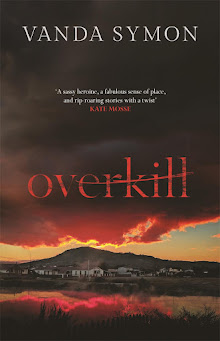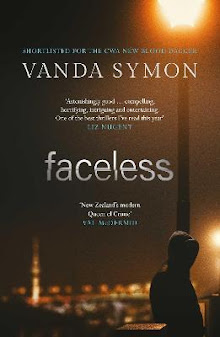
If you asked me to name, off the top of my frizzy head, books I could distinctly remember that used dialogue with accent, all of my responses would involve books with Scotsmen. Big, red-haired highland Scotsmen. Diana Gabaldon's Cross Stitch (Outlander in the USA) series is the one that stands out. Part of that would be because I fell in love with James Alexander Malcolm MacKenzie Fraser. Didn't everybody?
Do you need accent to portray ethnicity, or region or class? Is providing character background in the narrative, and appropriate colloquial terms enough of a clue, so the reader fills in the gaps with the voice they imagine a character to have?
How much is too much?









9 comments:
Scots English keeps coming up in these discussions. The translator Mike Mitchell said he briefly considering using it for certain German dialects. And humorists such as Stephen Leacock and P.G. Wodehouse used to have great fun with it. I wonder what other varieties might join it as widely known and noticed forms of English.
============================
Detectives Beyond Borders
"Because Murder Is More Fun Away From Home"
http://detectivesbeyondborders.blogspot.com/
Irish comes to mind as another possibly 'easy' accent to approximate in text. Possibly because readers from most anglocentric countries have heard plenty of examples of lyric Irish accents, and can play it in their head with ease.
Humourists could also have fun with, for example, colonial Indian accents, to portray caricatures of people. They make use of stereotype that works in a humourous setting, but, I fear would jar or irritate in other fiction.
How would you portray an American accent, Peter? Are there any key sounds or words that you think give readers an 'aha' moment, that guy's an American?
As an Irish person with a distinct Ulster Scots accent from the North Coast of Antrim who sounds nothing like the people five miles up the road never mind from the various areas of Derry/Londonderry, Belfast or Dublin I would not say it was easy to approximate in text.
Whenever people try to mimic an Irish accent in front of me they sound like the only soundtrack in their head comes from Bing Crosby or Darby O'Gill.
On overheard conversations in the street some young new Zealand women sound like California valley girls to my highly tuned writer's ear.
Well bejabers and begorrah Oi tink Oi've rhambled on enough now so.
That's a good question, and my answer will relate to what Hugh MacMillan has said. I imagine that there is a rich variety of accents in Scotland and Ireland. In a country the size of the U.S., the variety must even greater: Southern drawl? Midwestern twang? Fast-talking New York City? Any one of several New England or Texas accents? It would depend on which of many kinds of American one wanted to depict.
And then there is my native land, Canada, with its own range of accents according to region, class, ethnic origin and so on.
===================
Detectives Beyond Borders
"Because Murder Is More Fun Away From Home"
http://detectivesbeyondborders.blogspot.com/
Which is why it's difficult territory to attempt to give a character an accent and do it well. It's easy to end up wielding a stereotypical voice.
It's interesting, Hugh, that you talk about some New Zealand teenage girls sounding like California Valley girls. I hear some boys down the mainstreet of Dunedin talking like they've just stepped out of the hood in gangsta land. So, how much has television and music influenced accent and are we becoming internationalised or homogenised?
If I recall correctly, Ken Bruen has Jack Taylor remark on another Irish character's frequent use of Americanisms in Priest.
==============
Detectives Beyond Borders
"Because Murder Is More Fun Away From Home"
http://www.detectivesbeyondborders.blogspot.com/
I always think it can get tiring for readers reading dialogue that tries to portray a particular accent. As the writer is there to 'translate' dialogue to make it readable -- cutting out repetition etc -- so s/he needs to translate an accent into the odd word or phrase that indicates where the person comes from. Hopefully the fact of someone's Irishness etc is spelt out elsewhere in the story. It's the same when writing an historical novel -- people back then didn't speak quite as we do now. For my novel I used the Oxford NZ Dictionary to give me phrases used in the 1930s e.g. when all was good they used to say 'she's apples'.
Two examples of authors using almost phonetic speech came to me last night not long after I went to bed still buzzing from a biiiiig lump of Cadbury's Dairy Milk and last night's DVD treat Asoka.
One was Irvine Welsh and the other Tom Woolfe.
What did they have in common?
Without having heard Robert Carlyle speaking in Looking After Jo Jo (1998) (TV) much of Trainspotting would have been meaningless.
The speech of the southern states' soldiers in Tom Woolfe's Ambush at Fort Bragg I suppose I was able to understand - eventually - due to Film and Television exposure.
I had to have heard them first. These two examples worked for me even though I had to do a bit of work to decipher.
Neither example was particularly comic although language of the people has often used for been lampooning and comedic effect.
But who is it funny for? If you come from India and live in Britain, would you want to hear your accent held up to ridicule?
I laughed with the rest at Peter Sellers doing his wog accents when I was growing up.
I can still hear his entrepreneurial character who is trying to do the Indian version of My Fair Lady listing one of his songs as
"I have grown accustomed to your dhoti"
Post a Comment